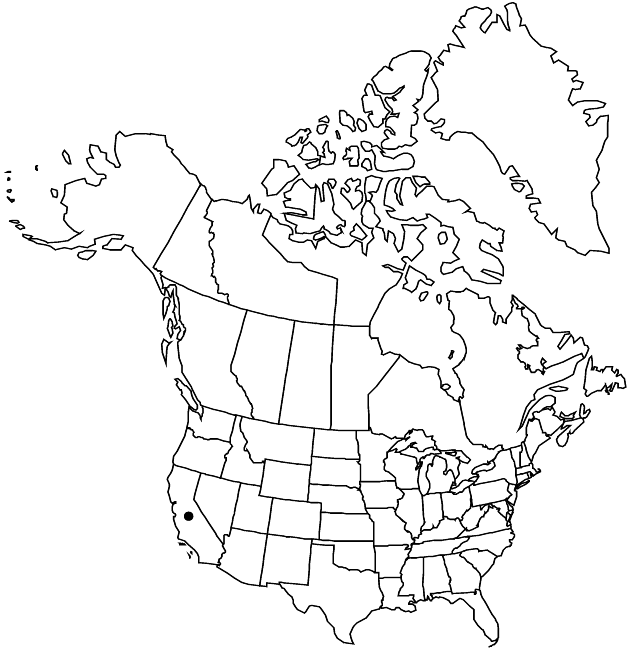Deinandra pallida
Novon 9: 469. 1999.
Annuals, 9–100 cm. Stems ± solid or fistulose. Leaves: proximal blades pinnatifid to toothed, faces ± hirsute and sometimes sparsely stipitate-glandular as well. Heads in crowded to open, corymbiform or paniculiform arrays. Bracts subtending heads sometimes overlapping proximal 0–1/2 of each involucre. Phyllaries ± evenly and minutely stipitate-glandular, including margins and apices, with nonglandular, non-pustule-based hairs as well. Paleae in 1 series. Ray-florets (7–) 8–12; laminae pale-yellow, 6–12 mm. Disc-florets 10–21, all or mostly functionally staminate; anthers yellow or brownish. Pappi usually of 4–9 linear or oblong scales 0.8–1.1 mm, or of 1–5 subulate to setiform scales 0.1–0.9 mm, rarely 0.2n = 18.
Phenology: Flowering Mar–Jul.
Habitat: Grasslands, open woodlands and shrublands, barrens, disturbed sites, sandy, silty, or clayey soils, often ± alkaline
Elevation: 70–900 m
Discussion
Deinandra pallida occurs in the southern San Joaquin Valley and the bordering Inner South Coast Ranges and southern Sierra Nevada foothills.
Selected References
None.
